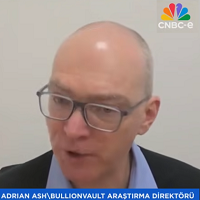Crash or correction, gold and silver buying matches selling so far...
Opinion & Analysis
How the Donroe Doctrine plays for precious investment...
Silver also set to jump says leading investor survey...
So close, so clueless from The Economist...
Follow Us










 Email us
Email us